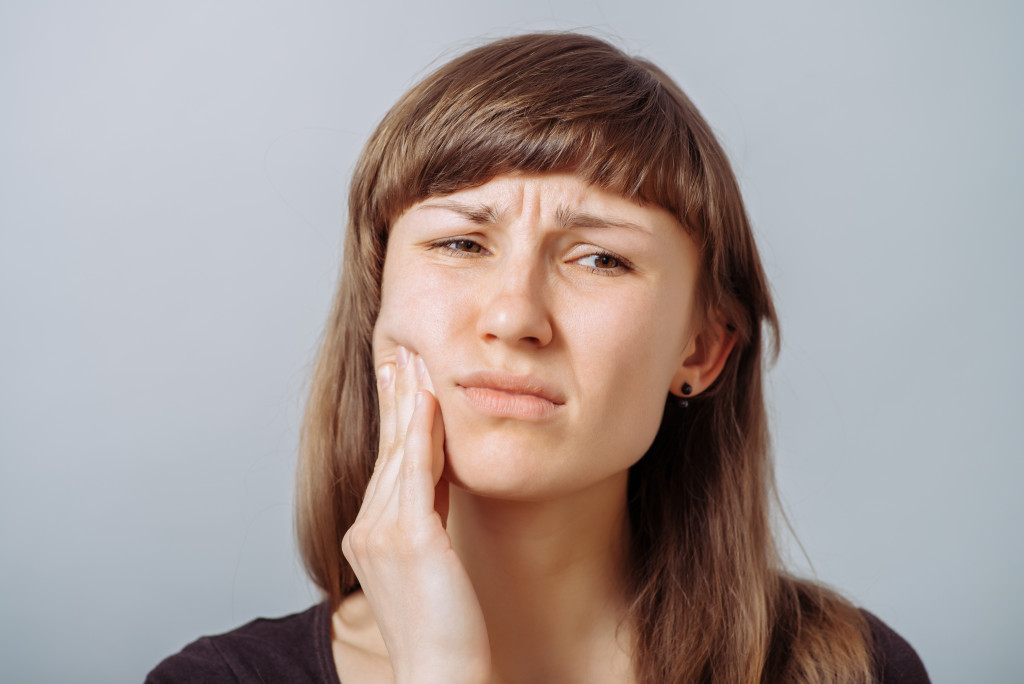It’s pretty easy to underestimate dental diseases. They are, however, severe and can lead to life-threatening conditions. That’s why it’s essential to be aware of the signs and symptoms of dental diseases and to seek treatment as soon as possible.
Dental diseases are often caused by poor oral hygiene. One of the most common dental diseases out there is periodontal disease.
What is Periodontal Disease?
Periodontal disease, also known as gum disease, is an infection of the gums. It is caused by plaque, a sticky film of bacteria that forms on the teeth. If plaque is not removed, it can harden and turn into tartar. Unfortunately, a professional cleaning can only remove tartar.
If plaque and tartar are not removed, they will begin to damage the gums. It can eventually lead to tooth loss.
Signs and Symptoms of Periodontal Disease
The early stage of periodontal disease is called gingivitis. Gingivitis is characterized by red, swollen, and bleeding gums. The disease is reversible at this stage.
If gingivitis is left untreated, it will progress to periodontitis. Periodontitis is a more severe form of the disease that can lead to severe tooth loss. The symptoms of periodontitis include:
- Red, swollen, and bleeding gums
- Persistent bad breath
- Loose teeth
- Receding gums
- Painful chewing
These symptoms are problematic and can significantly affect your way of life once it worsens.
What Causes Periodontal Disease
Periodontal disease is caused by many more things than just poor oral hygiene. One common reason why it happens is smoking.

Smoking
The residue cigarettes leave behind on your teeth and gums is full of toxins that damage the tissue. This increases your risk of developing periodontal disease. Moreover, it can cause discoloration of the teeth and other dental problems.
Hormonal Changes
Hormonal changes, such as those occurring during puberty, pregnancy, and menopause, can cause periodontal disease. These changes make the gums more sensitive and vulnerable to the toxins in plaque.
Certain Medications
Certain medications, such as steroids and certain cancer treatments, can also increase your risk of developing periodontal disease. This is because these medications weaken the immune system and make it difficult for the body to fight off infection.
Medical Conditions
Certain medical conditions can increase your risk of developing periodontal disease. These include diabetes, HIV/AIDS, and heart disease.
Complications With Periodontal Disease
Certain complications can also exist with periodontal disease. The most common and most severe is oral cancer.
Oral Cancer
There is a significant relationship between periodontal disease and oral cancer. Periodontal disease can increase the risk of oral cancer by up to three times, and people with oral cancer are more likely to have periodontal disease. In addition, the two diseases share many common risk factors, including smoking and chewing tobacco.
Respiratory Diseases
Periodontal disease can also lead to respiratory diseases, such as pneumonia. In addition, the bacteria that cause periodontal disease can enter the lungs and cause infection.
Diabetes
Periodontal disease can also make it difficult to control diabetes. People with diabetes are more likely to develop periodontal disease, and people with periodontal disease are more likely to develop diabetes.
How to Prevent Periodontal Disease
The best way to prevent periodontal disease is to practice good oral hygiene. But there are also other ways you can prevent it from happening. One way is to have regular visits to a dental clinic. This option will ensure that you’ll know whether you have periodontal disease. It’ll also enable prompt treatment of the disease when it does happen. Another option is to get dental implants.
Dental Implants
The lack of teeth can leave your gums vulnerable to bacteria and other harmful substances. Dental implants can help to prevent this by providing a replacement for the missing tooth. It will also help to restore your smile and your confidence. Another way to prevent periodontal disease is by quitting smoking.
Quit Smoking
As mentioned earlier, smoking is one of the significant risk factors for periodontal disease. Therefore, quitting smoking will reduce your risk of developing the disease and improve your overall health.
Avoid Sugary Foods and Beverages
Eating sugary foods and drinks can increase the plaque on your teeth. This can lead to tooth decay and periodontal disease. Therefore, avoiding sugary foods and beverages is essential, especially if you have periodontal disease.
Final Thoughts
Periodontal disease is a severe dental condition that can lead to many complications. It’s essential to prevent the disease from happening. If you do develop periodontal disease, there are treatment options available. Don’t hesitate to visit a dental professional if you think that you have the disease.




